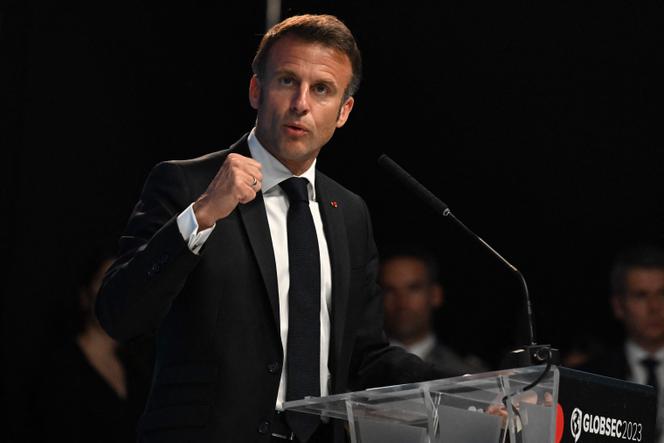
The applause was sparse at first, then erupted at the end of his speech. Emmanuel Macron tried to pledge his commitment to Ukraine in an address delivered on Wednesday, May 31, in Bratislava, the capital of Slovakia. Invited to the Globsec forum, a strongly pro-West meeting, the French president knew he was in for a rude awakening: This part of Europe is quick to criticize his willingness to engage in dialogue – albeit suspended since September 2022 – with President Vladimir Putin or his efforts to avoid humiliating Russia in order to achieve a peace agreement one day. Without promising a rapid accession for Kyiv to the North Atlantic Treaty Organization (NATO), Macron placed at the heart of his diplomatic counter-offensive the delicate question of the "security guarantees" that are supposed to ensure the continuity of Western support for Ukraine, both before and after the end of hostilities.
"If we want a credible, lasting peace, if we want to have any weight against Russia, if we want to be credible with the Ukrainians, we have to give Ukraine guarantees to prevent any further aggression and include Ukraine in a credible security architecture, for ourselves," he said. "I'm in favor of these guarantees being tangible and credible (...) We need to be much more ambitious than we sometimes are on these issues."
You have 80.92% of this article left to read. The rest is for subscribers only.